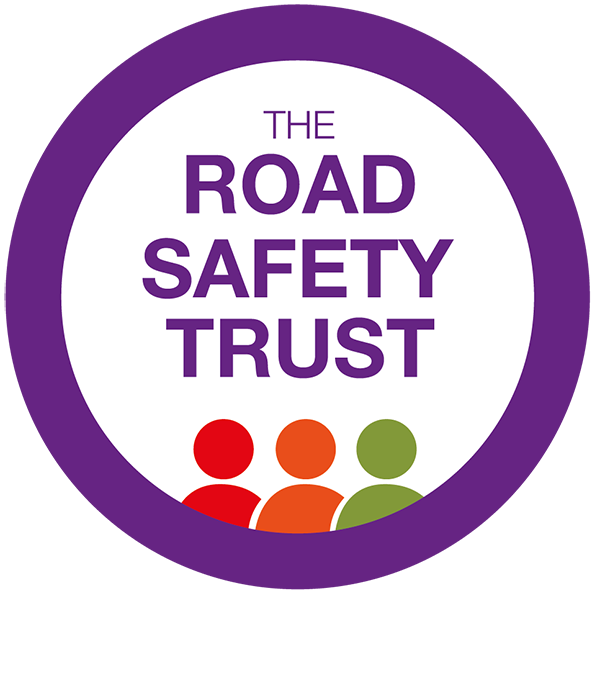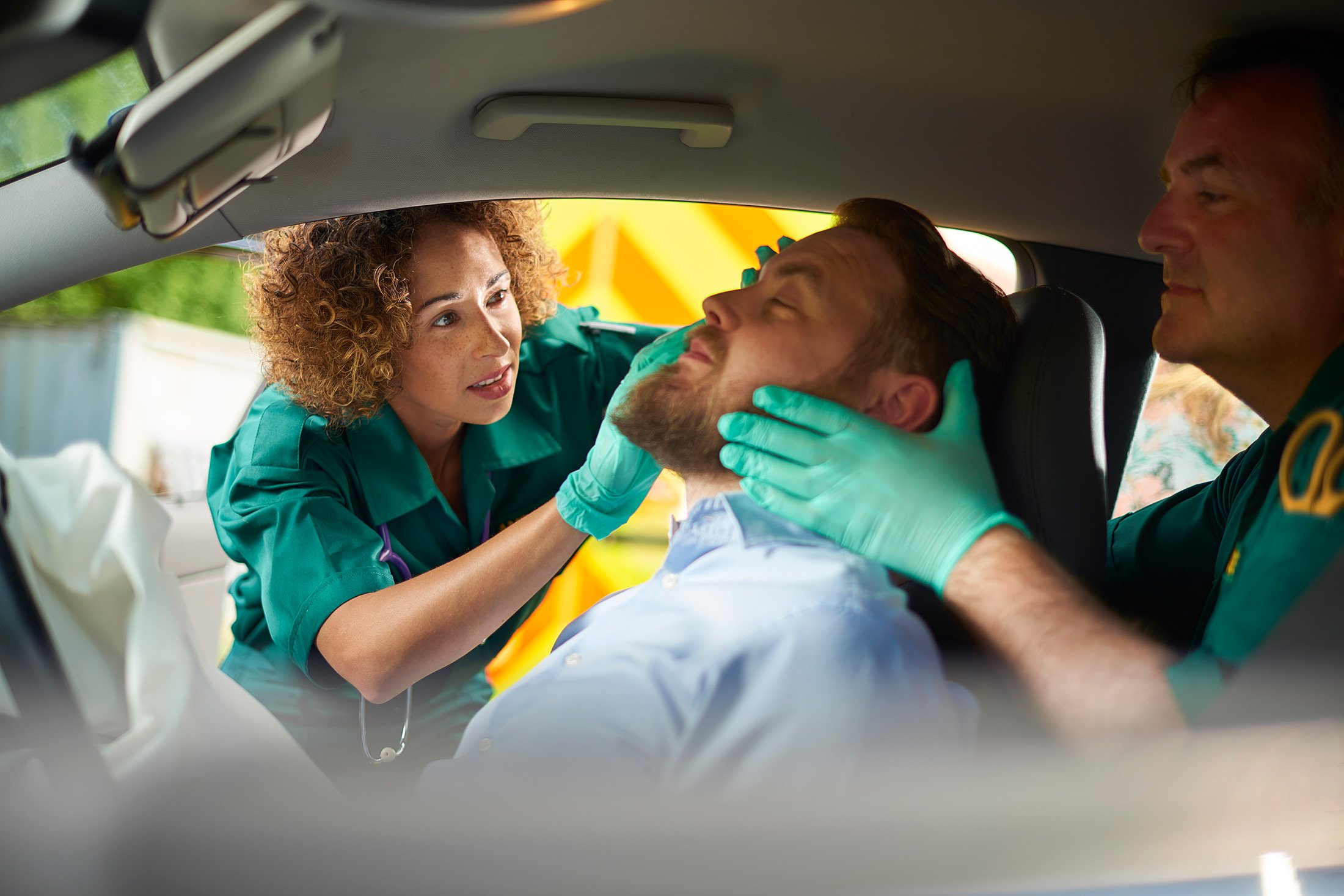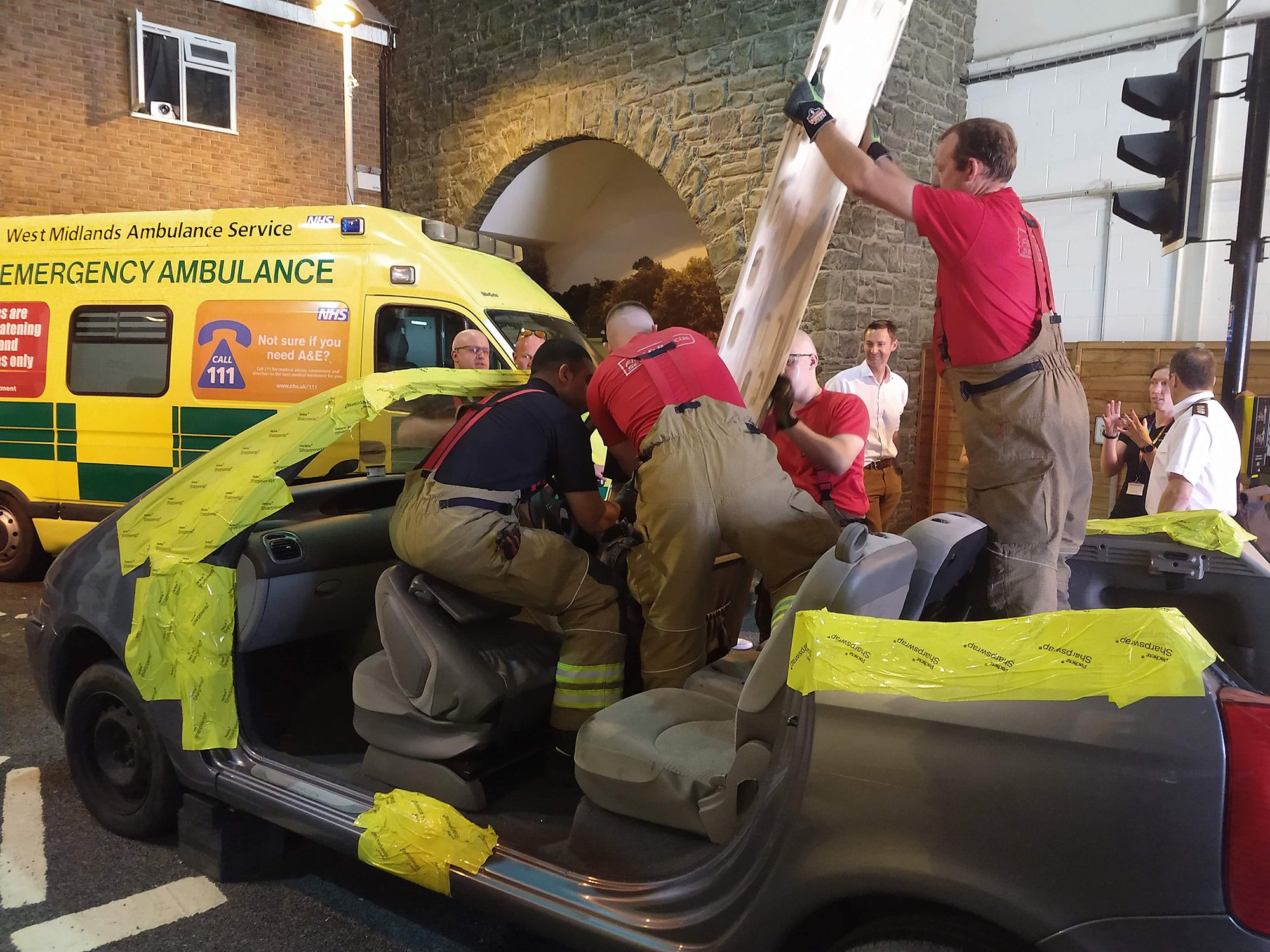New research project aims to improve outcomes for trapped casualties in road collisions
Fire and rescue chiefs collaborate with medics to explore better, faster road casualty extrication and care techniques. Outcomes will mean reduced pain and suffering for casualties, with economic benefits from reductions in road closure times.
The National Fire Chiefs Council is to embark on a collaborative multidisciplinary project to deliver improved patient outcomes following road traffic collisions. Using a grant of £84,000 from the Road Safety Trust, the project will see experts from the National Fire Chiefs Council working alongside clinicians, academics and other rescue professionals to explore ways of understanding the extrication process better and identifying the most effective ways of performing life-saving clinical interventions.
Other participants include Cleveland Fire Brigade, Oxfordshire Fire and Rescue Service, the United Kingdom Rescue Organisation, NHS clinicians and university academics.
“This project could save many lives, so I am thrilled to have received the support of the Road Safety Trust.”
Every year the lives of more than 1.25 million people across the world are cut short as a result of road traffic crashes. Between 20 and 50 million more people suffer non-fatal injuries, with many incurring a disability as a result of their injury. The hourly cost of a three lane carriageway closure on a busy UK motorway is estimated at £500,000.
The project was born out of the passion of emergency medicine consultant Dr Tim Nutbeam and advanced clinical practitioner Rob Fenwick to improve patient outcomes, following entrapment road collisions.
Dr Nutbeam believes the project has the potential to save lives. “Freeing a patient trapped within a vehicle takes a significant time, may contribute to injury and prevents the delivery of life saving clinical interventions,” he said. “Understanding this process better and identifying the best way to perform these procedures will reduce pain and suffering and may prevent further injury and death.”
Mike Dayson, the National Fire Chiefs Council’s lead for research and development, said he was excited about the potential of the project to deliver improved outcomes for road crash casualties. “Having attended numerous road traffic collisions, and having lost friends as a result of collisions, I understand the benefit in evidence-based research that can improve patient outcomes,” he said.


